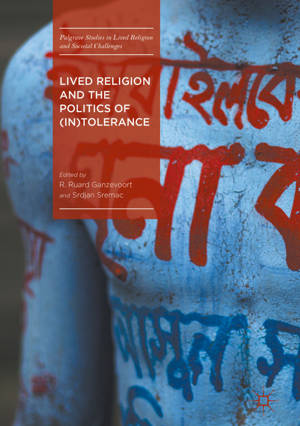
- Afhalen na 1 uur in een winkel met voorraad
- Gratis thuislevering in België vanaf € 30
- Ruim aanbod met 7 miljoen producten
- Afhalen na 1 uur in een winkel met voorraad
- Gratis thuislevering in België vanaf € 30
- Ruim aanbod met 7 miljoen producten
Lived Religion and the Politics of (In)Tolerance
Omschrijving
This volume explores the ways in which lived religion encourages and contributes to conflicts, as well as fosters tolerance, in the interlocking rural, urban, and virtual social spheres. Through ten case studies with vast geographical and religious variation, the contributors address some of the shortcomings in analyses of the relationship between religion and (in)tolerance and offers a theoretically and empirically more nuanced understanding of the micro-politics of (in)tolerance and the roles of lived religion in it. The book argues that (in)tolerance and its connection to religion cannot be fully understood unless analyzed from below, which means that the focus needs to be not only on public institutions or religio-political spaces but also on (in)tolerance of ordinary people and their performativity, practices, and interests in non-institutionalized spaces. This showcases the ambiguous interconnectedness of lived religion and (in)tolerance.
Lived Religion and the Politics of (In)Tolerance will be of interest to students and scholars interested in lived religion, the relationship between politics and religion, and those working in cross-cultural dialogue and through an anti-racism, and anti-violence lens.
Specificaties
Betrokkenen
- Uitgeverij:
Inhoud
- Aantal bladzijden:
- 261
- Taal:
- Engels
- Reeks:
Eigenschappen
- Productcode (EAN):
- 9783319434056
- Verschijningsdatum:
- 16/03/2017
- Uitvoering:
- Hardcover
- Formaat:
- Genaaid
- Afmetingen:
- 148 mm x 210 mm
- Gewicht:
- 480 g

Alleen bij Standaard Boekhandel
Beoordelingen
We publiceren alleen reviews die voldoen aan de voorwaarden voor reviews. Bekijk onze voorwaarden voor reviews.










